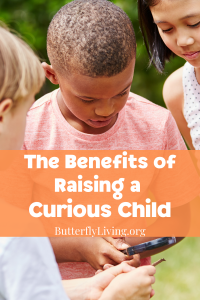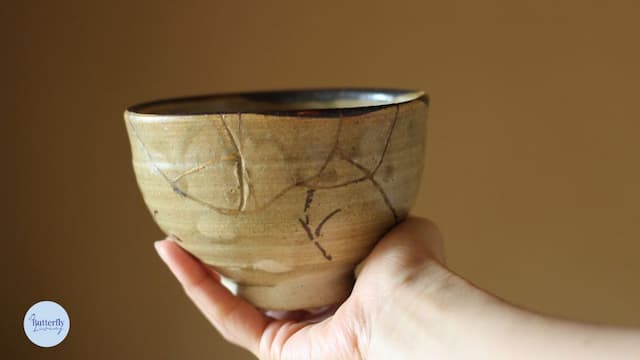The Importance of Curiosity in Kids and 2 Helpful Ways We Can Foster it
As a parent, I used anything and everything to ignite my son’s curiosity. I knew curiosity in kids was a step toward academic or scientific thinking and a lifelong habit of exploring God’s wonder.
Oftentimes, people will say a particular child is just naturally curious and others are not. As a parent or teacher, you might concede defeat. Because, after all, if a child doesn’t come by curiosity naturally, what are you to do?
Curiosity in Kids Produces Awe in God
Perhaps curiosity doesn’t come easy to some, but many experts argue that it resides as an innate drive within us all. However, something usually proceeds it.
Curiosity needs to be ignited
We can learn how to build curiosity in kids. In my own life and parenting, the precedent was the awe and reverence for God’s wonders.
Awe leads to wonder, which leads to curiosity, which leads to thinking, which leads to questioning, and which, finally, leads to discovery. Then the whole process starts over again! I call it the Wonder Loop!
We are to stand in awe of God.
In her blog Life is a Vapor, Summer Marrero Cordon suggests that wonder begins with God. “When you look upon God do you see anything admirable?” she writes. “He is like no other. There is much to admire. To admire God is much more than just admiring a painting. It’s more than admiring a person. To admire God means to adore Him, treasure Him, and to marvel at Him.”
Psalm 19:1-4 The heavens are telling the glory of God; and the firmament proclaims his handiwork. Day to day pours forth speech, and night to night declares knowledge.
How Beneficial is Curiosity to a Child?
Psychologists at George Mason University say most scholars define curiosity as the “recognition, pursuit, and desire to explore novel, uncertain, complex, and ambiguous events.”
These experts say curiosity is a potent psychological strength!
Neuroscientists say that learning driven by curiosity is one of the purest of human traits. The curious child learns for the sake of learning. Or, put another way, learning is its own reward.
Curiosity is the major driving force behind the discovery, scientific or otherwise.
Psychological and educational scholars are saying that curiosity in kids is critical to learning and achievement, and some of these researchers even say curiosity is not dependent upon intelligence.
Teaching kids to be curious can lead to successful learning
University of Michigan pediatric researchers found that even among young children, curiosity makes a meaningful contribution to achievement.
In their review of a vast amount of curiosity research, the George Mason scholars found that curious people have several habits in common.
Curious people are known to:
- ask lots of unprompted questions
- read deeply
- examine interesting images
- manipulate interesting objects
- investigate how other people think, feel, and behave
- take risks to acquire new experiences
- persist on challenging tasks
What Happens to Curiosity in Kids?
A questioning nature is a sign that curiosity in kids is at work.
“The greatest invention in the world is the mind of a child.”
– Thomas Edison
But have you noticed that by a certain school age, a child’s questioning lessens? Don’t take this as a sign of maturity. It’s true that as children age, so does their sophistication in questioning, but the lessening of their questioning nature has more to do with the adults and peers around them as well as their education environment.
Often, teaching kids to be curious is not a priority, and little (or no) time is provided at home or in the classroom for free thinking or exploration.
Psychologists say the dampening of curiosity in kids can be an unfortunate consequence of formal education. By a certain age, classroom education douses the flame of curiosity. Researchers readily acknowledge that it is not an intentional assault on curiosity but rather the nature of many education systems in which the emphasis is on training, not learning.
Studies show that older students rarely ask questions reflective of cognitive rigor (higher-level thinking). Instead, they ask closed-ended, procedural, or fact-based questions. Basically, whatever they can ask quickly and might be of benefit to others “which lessens the potential of being teased.
That brings us to peer pressure. As they get older, students don’t want to appear stupid in front of their peers. Just asking a question can be embarrassing no matter how the teacher reacts.
Before we are tempted to play the blame game and throw disapproval toward teachers or our school systems, remember that we are all responsible for how our children are educated.
Better yet, as parents, we have an opportunity to foster curiosity in kids and help our children become lifelong learners. The research around this is clear and strong “children’s curiosity is influenced by those around them.
But here’s what might surprise you. Common wisdom tells us that as children age they become (and should become) more independent of parents and caregivers.
Here’s a different take on that school of thought.
“Adults only become more important as children develop,” writes Susan Engel, senior lecturer in Psychology at Williams College in Massachusetts. “As children get older, they yearn to understand what lies beyond the apparent; they want to know about what they can see in front of them but also what they cannot see. This is where parents are particularly useful.”
So, what can you do? For the children in your life, to learn how to build curiosity at every stage of their development.

How Do You Raise an Intellectually Curious Child?
To start, model curiosity in your own life. Sports coach Greg Esteves takes this suggestion a step further. He recommends that we also model How to Observe the World.
If your curious nature has been dampened, be intentional about reigniting it.
Ask questions aloud. Start with “I wonder” The curious child who asks a lot of questions isn’t annoying, she is exploring, and she wants you to join her in the adventure.
Remind yourself that the constant barrage of questions is not likely to be attention-seeking behavior in most normal children. Research has debunked that myth.
If you feel as though you are constantly being peppered with questions, slow your roll by picking a question to help the child explore.
Ideas to Foster Curiosity in Kids
Family Stories
We all know that reading can ignite our imaginations, but you might not know about the benefits of sharing family stories. You can find ways to bring those stories alive in their minds. Teaching kids to be curious can start with old family photos and asking questions around things in the photo.
Photos and other old media can help children imagine themselves in a different place or time. Plus, the bonus is that the characters aren’t fictional. These are real people who played a part in our lives.
You can come up with craft projects for old photos as well. I made copies and allowed my son to make a storyboard using the photos. He incorporated some of the real-life stories into a whole new story of his own.
Family field trips
Field trips can range from outdoor exploration to museum visits. The point is to get children out of their normal, everyday environment.
One of the curiosity games for toddlers could be a visit to a museum. I started museum visits when my son was still a toddler and I was in graduate school. University campuses typically offer all sorts of museums and collections free for the public to explore.
As a young child, his wonderment took the lead in how we explored a museum. Who knew he would become so enthralled with a mummy? I didn’t and I wasn’t enthralled. In fact, I wanted to keep moving things along.
Not only did he get stuck on looking at that mummy, like forever, but he wanted to go back again and again. Thankfully, grandma volunteered for those revisits. She even found a professor to explain the mummy to him!
Next thing you know I’m borrowing books from the library about Egyptology for a 4-year-old.
But his favorite exploration time was in nature. Even our own backyards can provide endless hours of wonder to ignite curiosity in kids.
Resources for Nurturing Curiosity
Karen Stephens, who retired as the director of Illinois State University’s Child Care Center, offers strategies for making the most of children’s natural curiosity and wonder. Stephens was an instructor in child development and wrote a weekly parenting column for nine years.
Zero to Three is a website with a mission to turn the science of early development into helpful resources. In this article, they offer eight tips for nurturing curiosity in kids, including how to turn the library into a curiosity adventure.
Creativity helps nurture an innovative mind. Here’s a fun infographic from the child psychologists at Maryville University on how to build curiosity and creativity in children.












